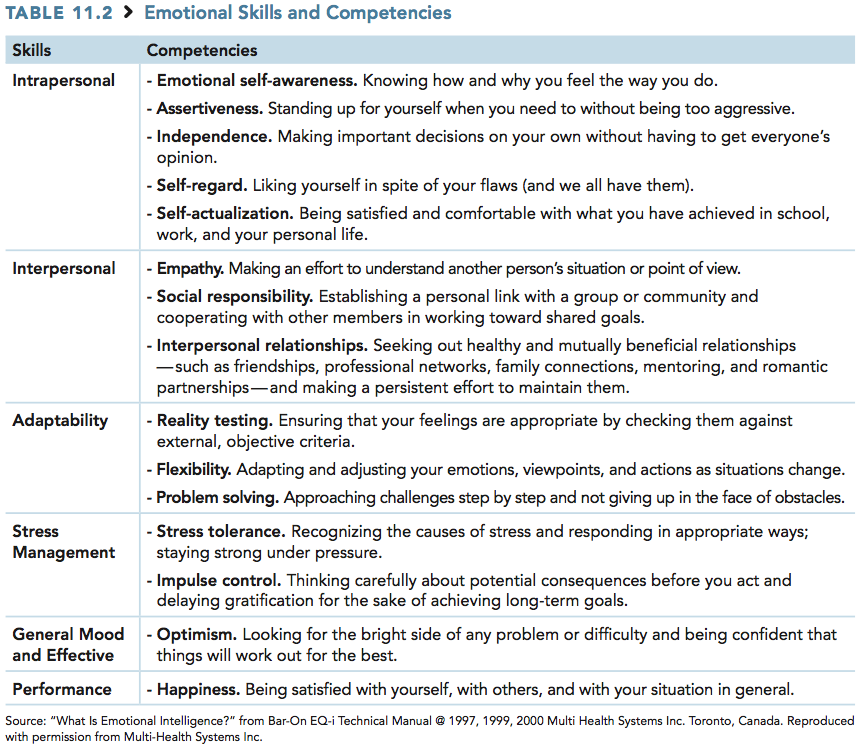Perceiving and Managing Emotions
Developing an awareness of emotions allows you to use your feelings to improve your thinking. If you are feeling sad, for instance, you might view the world in a negative way, while if you feel happy, you are likely to view the same events differently. Once you start paying attention to emotions, you can learn not only how to cope with life’s pressures and demands but also how to use your knowledge of the way you feel for more effective problem solving, reasoning, decision making, and creativity. This is all part of developing your emotional intelligence.
Perceiving emotions involves the ability to monitor and identify feelings correctly (nervous, happy, angry, relieved, and so forth) and to determine why you feel the way you do. It also involves predicting how others might feel in a given situation. Emotions contain information, and the ability to understand and think about that information plays an important role in behavior.
Managing emotions is based on the belief that feelings can be modified, even improved. At times, you need to stay open to your feelings, learn from them, and use them to take appropriate action. Other times, it is better to disengage from an emotion and return to it later. Anger, for example, can blind you and lead you to act in negative or antisocial ways; used positively, however, anger can help you take a stand against bias or injustice. Learning how to put yourself in the right mood to handle different situations is important.
Based on the work of Professor Reuven Bar-On, Table 11.2 lists skills that influence a person’s ability to cope with life’s pressures and demands. Which skills do you think you already have? Which ones do you need to improve?

YOUR TURN > ON YOUR OWN

Write a description of yourself as a successful person ten years after you graduate from college. What kinds of skills will you have? Don’t just focus on your degree or a job description; include the competencies that help explain why you have become successful. To complete this activity, download a copy here.